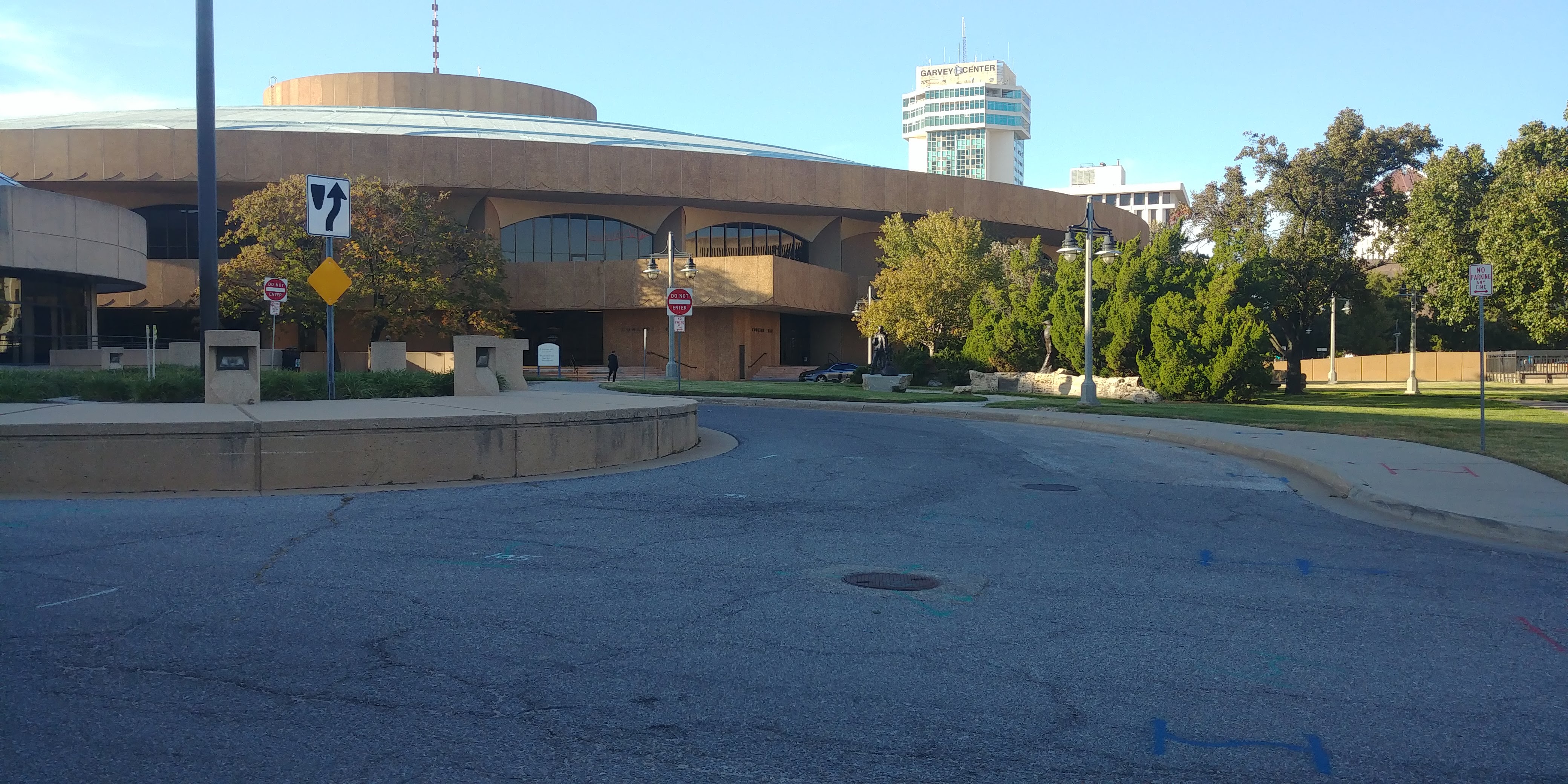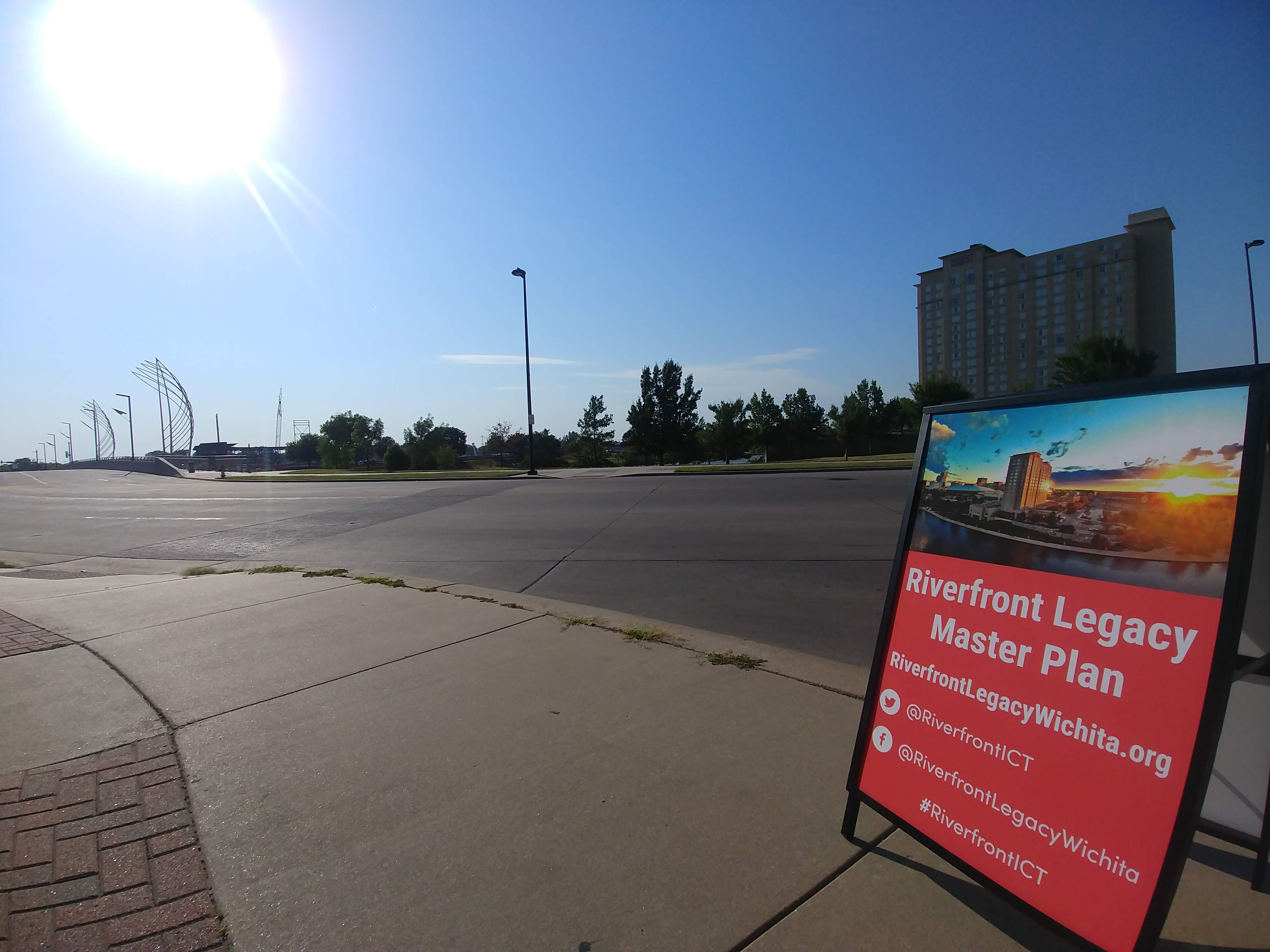After months of ‘no comment’ from city officials and downtown boosters, a sales tax increase in officially on the table to pay for the Wichita riverfront development along the east bank of the Arkansas River in Wichita. The Sentinel has been reporting on city officials and development refusal to rule out a sales tax increase since last year. The unveiling of the Riverfront Legacy Masterplan final design took place at Newman University. The plan looks to raze most of the existing buildings within the footprint.
The cost is estimated between $1 billion and $1.2 billion dollars. The potential tax increase was mentioned in passing but not discussed. Any approved development would be paid for using an arsenal of taxes and incentives. Last week the Sentinel reported the majority of voters in Wichita oppose a tax increase to pay for riverfront development.

Messaging on a potential vote on the Riverfront Legacy Master Plan is being squarely marketed as a divide about what to do with Century II. But riverfront development boosters have shied away from any debate about whether Wichitan’s want to pay more taxes for the project.
Amber Luther with Populous, the design firm handling the project said Oklahoma City is the model Wichita should follow.
“Oklahoma City aligns with what we think you guys should do,” said Luther.
Populous knows a lot about the convention center and mixed-used space being developed in Oklahoma City because they are getting paid to do it.
Five speakers on the moderated panel at the event spoke at length about the supposed positive economic growth the Wichita riverfront development would bring, but not one of them was an economist. There was a city councilman, a landscape architect, another architect, the CEO of Visit Wichita, and a restaurateur. The speakers referenced a feasibility plan that predicts millions in positive economic gains.
Susie Santos, the CEO of Visit Wichita wants Wichita to ‘keep up with the joneses’ to draw convention tourists. “Omaha, Des Moines, Tulsa, Oklahoma City, Overland Park, every one of them have made significant investments in their convention center and their communities are reaping those rewards because those bring outside dollars in.”
But according to Heywood Sanders, a professor at the University of Texas-San Antonio, the convention center market space is oversaturated. Sanders noted convention centers all over the country are discounting their rates just to get conventions to come.
“What’s the dynamic in which prime destinations are discounting their space or in many cases giving it away for free for a minimum rent? The answer is it’s an overbuilt buyers-market,” said Sanders
At a seminar on the Wichita economy sponsored by the Kansas Policy Institute, the parent company of the Sentinel, economist Sam Staley from Florida State University noted that in his decades of studying urban planning, convention centers do not pay in the long run.
“I hate to say it but I have yet to find outside of New York, Chicago, and Orlando a metropolitan area where investment in convention centers have significant economic development.”
There was talk at the meeting to schedule a vote on the development, but it is not clear if it would be a vote to tear down Century II or to increase the sales tax to pay for the Wichita riverfront development that would benefit one area of town.



